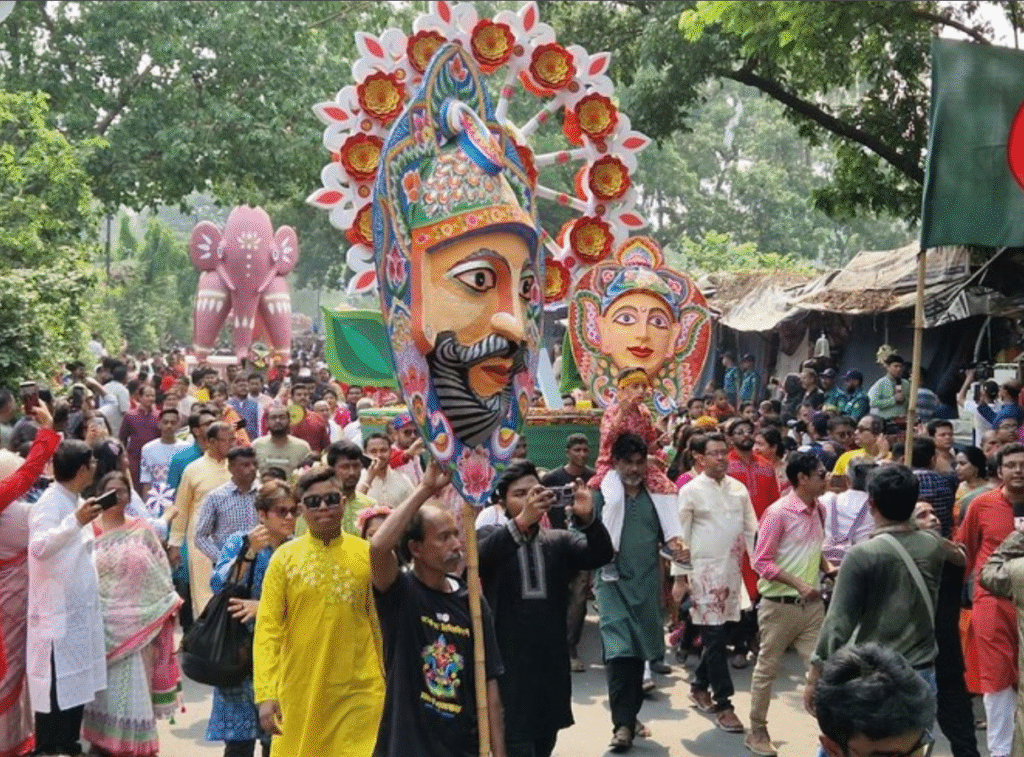Public holidays in Bangladesh create specific legal requirements and practical challenges for employers operating in the country. Understanding these obligations is essential for maintaining compliance and managing your workforce effectively during festival periods and national observances. All employees in Bangladesh are legally entitled to 11 paid festival holidays per year, and employers must compensate workers at their normal wage rate if they are required to work during these holidays. The Bangladesh Labor Act provides comprehensive provisions that govern how employers must handle public holiday compensation and scheduling. Your business success depends on properly navigating these holiday requirements while maintaining operations. Whether you’re managing production schedules, planning staffing levels, or ensuring payroll compliance, having a clear understanding of Bangladesh’s public holiday framework will help you avoid costly legal issues and maintain positive employee relationships.
Key Takeaways
- Employees receive 11 paid festival holidays annually with mandatory compensation for holiday work at regular wages
- Employers must follow specific labor law requirements for holiday scheduling and workforce management
- Proper compliance with public holiday regulations protects businesses from legal penalties and maintains employee satisfaction
Overview of Public Holidays in Bangladesh

Bangladeshis crowded the streets of Dhaka to welcome the Bengali New Year and take part in the Mangal Shobhajatra parade on April 14, 2024.
Bangladesh follows a comprehensive holiday system that combines Islamic religious observances, national commemorative days, and cultural celebrations. The country recognizes both mandatory national holidays and optional local observances that employers may choose to honor.
Definition and Legal Framework
Public holidays in Bangladesh are officially recognized days when government offices, banks, and most businesses remain closed. The government establishes these holidays through official notifications and labor laws. Bangladesh observes numerous public holidays that include national memorials, religious celebrations, and secular holidays. The legal framework requires employers to provide paid time off for designated national holidays. Mandatory holidays must be observed by all employers. These include major Islamic festivals and national commemorative days. Optional holidays are at your discretion as an employer. You can choose whether to grant paid time off based on employment contracts or trade union agreements. The Bengali traditional calendar, known as Baṅgābda, serves as both the national and official calendar. This influences the timing of many cultural celebrations throughout the year.
Annual List of Public Holidays
Bangladesh typically observes 15-20 public holidays annually. The exact number varies each year due to lunar calendar calculations for Islamic holidays.
The national holidays in Bangladesh for 2025 follow this established pattern. Islamic holidays shift annually based on lunar observations.
National Versus Local Holidays
National holidays apply throughout Bangladesh and are mandatory for all employers. These holidays receive official government proclamation and require business closures nationwide. Local holidays vary by region and community. Areas with significant Hindu populations may observe additional Puja festivals. Christian communities might celebrate Christmas with local recognition. National scope holidays include all Islamic festivals and patriotic commemorations. You must provide paid leave for these designated days. Regional variations allow local administrators to declare additional holidays. These might honor local historical events or community-specific religious observances. Some holidays receive optional status nationally but mandatory recognition locally. Your business location determines which additional holidays you must observe beyond the core national list.
Employer Obligations During Public Holidays
Employers in Bangladesh must provide paid time off during designated public holidays and compensate workers who perform duties on these days. The Bangladesh Labour Act sets clear rules for holiday pay and requires proper communication of leave policies to all employees.
Paid Leave and Compensation
Employees receive 17 days of festival holidays with pay under Bangladesh’s public holiday system. You must provide full wages for all designated public holidays, even when workers do not report to work. The law guarantees 11 paid festival holidays per year as a minimum requirement. These holidays cover major religious and national celebrations throughout the year.
Payment Requirements:
- Full daily wages during public holidays
- No deduction from monthly salary
- Equal pay regardless of religion or background
You cannot reduce an employee’s salary because they take time off during official public holidays. This applies to all workers regardless of their position or contract type.
Legal Requirements for Working on Holidays
When you require employees to work on public holidays, you must pay additional compensation. Workers must receive compensation equal to normal wages when working on paid holidays. The Bangladesh Labor Act requires you to pay double wages for holiday work. This means the regular daily wage plus an additional payment of the same amount.
Holiday Work Compensation:
- Regular wage: Normal daily pay
- Holiday premium: Additional 100% of daily wage
- Total payment: Double the standard daily rate
Section 103 of the Bangladesh Labor Act 2006 also mandates weekly rest days. You must provide at least one day off per week, typically Friday for most workers.
Policy Communication to Employees
You must clearly communicate your holiday policies to all employees in writing. This includes which days are designated as public holidays and how compensation works. Your employee handbook should list all festival holidays and leave entitlements according to the Bangladesh Labour Act. Workers need to understand their rights before holiday periods begin.
Required Policy Information:
- Complete list of public holidays
- Compensation rates for holiday work
- Process for requesting time off
- Emergency work procedures
Post holiday schedules in common areas where all employees can see them. Update these notices when the government announces changes to the official holiday calendar. You should distribute policy updates at least 30 days before major holiday periods. This gives workers time to plan their schedules and understand any changes to compensation rules.
Managing Workforce During Holidays

Public holidays in Bangladesh require careful planning to maintain business operations while respecting legal holiday entitlements. You must balance employee rights with operational needs through strategic scheduling, essential service protocols, and temporary staffing arrangements.
Holiday Scheduling Strategies
You need to plan holiday schedules well in advance to avoid conflicts and ensure adequate coverage. Start planning at least 30 days before major festivals. Create a holiday calendar that includes all 11 festival holidays required by law. Mark weekly holidays and any additional company-specific observances.
Priority-based scheduling works best:
- Essential positions get first priority for coverage
- Rotate holiday duties among eligible employees
- Consider employee preferences when possible
- Document all scheduling decisions
You should establish clear policies for holiday requests. Set deadlines for submissions and create fair selection criteria when multiple employees request the same days off. Use a centralized system to track requests and approvals. This prevents double-booking and ensures compliance with labor law requirements.
Handling Essential Services
Certain business functions must continue during public holidays. You need to identify these critical operations and plan accordingly.
Essential services typically include:
- Security and safety operations
- Customer service for urgent matters
- IT system maintenance
- Production lines that cannot stop
You must provide compensatory holidays with full pay when employees work on festival holidays. This is legally required under Section 118 of Bangladesh labor law 2006. Create an essential services roster that rotates fairly among qualified staff. No employee should work consecutive holidays unless they volunteer. Offer additional incentives beyond legal requirements to encourage voluntary holiday work. This reduces scheduling conflicts and improves employee satisfaction.
Temporary Staffing Solutions
Temporary workers can fill gaps during holiday periods. You should establish relationships with reliable staffing agencies before peak holiday seasons.
Consider these temporary staffing options:
- Part-time workers who want extra hours
- Retired employees for short-term contracts
- Students during academic breaks
- Freelancers for specific tasks
You must ensure temporary staff understand basic safety procedures and company policies. Provide essential training before their start date. Budget for higher temporary staffing costs during holidays. Agencies typically charge premium rates during peak demand periods. Plan temporary staffing needs at least 2-3 weeks ahead. Popular holiday periods see high demand for temporary workers across all industries.
Compliance with Labor Laws

Employers in Bangladesh must follow specific legal requirements when managing public holidays and employee leave. The Bangladesh Labour Act, 2006 sets clear rules for holiday pay, recordkeeping, and reporting that all businesses must meet.
Relevant Bangladesh Labor Laws
The Bangladesh Labour Act, 2006, as amended by the Bangladesh Labour (Amendment) Act, 2018 serves as the primary legal framework governing public holidays and leave entitlements. This comprehensive legislation covers all aspects of employee holiday rights and employer obligations. You must provide paid time off for all gazette public holidays as specified by the government. The law requires full salary payment for these holidays, even when employees do not work.
Key legal requirements include:
- Payment of regular wages during public holidays
- Advance notice of holiday schedules to employees
- Proper documentation of holiday policies in employment contracts
- Compliance with minimum leave entitlements beyond public holidays
Understanding the legal framework is essential for maintaining workplace compliance. Violations can result in penalties and legal action against your business. The government has made labor laws very strict regarding holiday entitlements. You cannot reduce or deny these legally mandated benefits to employees.
Reporting and Recordkeeping Requirements
You must maintain detailed records of all public holiday payments and employee attendance. These records serve as proof of compliance during labor inspections and legal disputes.
Required documentation includes:
- Holiday payment records – Documentation showing full wage payments for each public holiday
- Attendance registers – Records of which employees worked or took leave on holidays
- Policy documents – Written holiday policies provided to all employees
- Payroll records – Detailed payment information for holiday compensation
Keep these records for a minimum of three years from the date of each holiday. Digital and physical records are both acceptable under current regulations. You must report holiday-related violations or disputes to the Department of Labor within specified timeframes. Statutory compliance under the Labour Law requires accurate reporting of all workplace issues. Regular audits of your holiday compliance help identify potential problems before they become legal issues. Many employers work with legal firms to ensure proper compliance with Bangladesh labor laws.
Best Practices for Employers
Effective holiday management requires clear policies, proactive employee engagement strategies, and structured dispute resolution processes. These practices help you maintain compliance with Bangladesh labor laws while fostering positive workplace relationships.
Creating a Holiday Policy
Your holiday policy should clearly outline all public holidays recognized under Bangladesh labor law. Include national holidays like Independence Day, Victory Day, and religious observances such as Eid festivals and Durga Puja.
Essential Policy Elements:
- Complete list of mandatory public holidays
- Holiday pay calculation methods
- Work requirements for essential services
- Substitute holiday arrangements
- Religious accommodation procedures
Document your policy in both Bengali and English to ensure all employees understand their rights. Specify which holidays are paid and which departments may require skeleton staffing. Your policy must address substitute holidays when public holidays fall on weekends. Bangladesh labor regulations require employers to provide alternative days off or additional compensation. Include clear procedures for requesting religious holidays not covered by national observances. This shows respect for your diverse workforce while maintaining operational efficiency.
Employee Engagement During Holiday Periods
Maintain team morale by recognizing diverse cultural celebrations throughout the year. Send company-wide messages acknowledging major holidays like Bengali New Year, Eid, and Durga Puja. Plan workload distribution before holiday periods to prevent last-minute stress. Assign temporary responsibilities to available staff members and postpone non-urgent projects until after holidays.
Engagement Strategies:
- Holiday bonus payments where appropriate
- Cultural celebration events in the workplace
- Flexible scheduling around religious observances
- Team building activities before long holiday weekends
Consider organizing voluntary cultural exchange sessions where employees share holiday traditions. This builds understanding between different religious and ethnic groups within your organization.
Communicate holiday schedules well in advance so employees can plan personal celebrations. Effective leave management requires at least 30 days notice for major holiday periods.
Addressing Holiday-Related Disputes
Establish clear procedures for handling holiday pay disputes and scheduling conflicts. Document all holiday-related decisions to protect your business from potential legal challenges. Common disputes include disagreements over holiday eligibility, pay calculations, and mandatory work requirements. Create a step-by-step grievance process that employees can follow when issues arise.
Dispute Resolution Steps:
- Direct discussion with immediate supervisor
- Formal complaint to HR department
- Management review within 7 days
- Written decision with explanation
- Appeal process if needed
Train your managers to handle holiday requests fairly and consistently. Favoritism in holiday scheduling creates workplace tension and potential discrimination claims. Keep detailed records of all holiday-related communications and decisions. Bangladesh labor law compliance requires proper documentation for potential inspections or legal proceedings. Address religious accommodation requests promptly and in good faith. Denying reasonable religious holiday requests without valid business justification violates employee rights under Bangladesh law.
Frequently Asked Questions
Bangladesh employers must navigate specific regulations regarding public holidays and employee leave entitlements. Understanding official holiday schedules, weekly rest days, and government requirements helps ensure proper compliance with labor laws.
Q. What are the officially recognized government holidays in Bangladesh for the year 2025?
Bangladesh observes 21 national holidays annually. However, employees are only entitled to 11 of these as paid holidays. The Bangladesh public holidays 2025 include major religious festivals like Eid al-Fitr and Eid al-Adha. Other important holidays cover Independence Day and Victory Day.
Q. How can employers in Bangladesh ascertain if today is a public holiday?
Employers should check official government announcements for current holiday schedules. The government may modify dates throughout the year. You can consult the national calendar or government websites for updates. Many employers also subscribe to official notifications from labor authorities. Holiday dates sometimes change based on lunar calendar observations. This particularly affects religious holidays like Eid celebrations.
Q. What are the weekly holidays observed by organizations in Bangladesh?
Most organizations in Bangladesh observe Friday as the weekly holiday. Some businesses also include Saturday in their weekend schedule. The standard work week typically runs from Saturday to Thursday. Government offices usually follow this pattern. Private companies may choose different weekly holiday arrangements. However, Friday remains the most common weekly rest day across the country.
Q. Are international holidays such as Easter Sunday recognized as public holidays in Bangladesh?
Bangladesh does not recognize Easter Sunday as an official public holiday. The country’s official holidays focus on Islamic festivals and national celebrations. International holidays like Christmas may receive recognition in some private organizations. However, these are not mandated government holidays. Festival leaves in Bangladesh center on national and religious observances specific to the country’s culture. Employers are not required to provide paid leave for international holidays.
Q. What are the government regulations regarding leave on public holidays for employees in Bangladesh?
Employers must provide paid leave on designated public holidays. This requirement applies to both full-time and part-time workers. The Bangladesh Labour Act 2006 governs holiday leave regulations. Employees are entitled to festival holidays with pay, though specific holidays are determined by the employer. Workers cannot be required to work on official public holidays without compensation. If employees must work, they typically receive additional pay or compensatory time off
Q. How do public holidays affect work schedules in Bangladesh, particularly for private sector employers?
Private sector employers must adjust schedules around official public holidays. All employees are entitled to time off during these designated periods. Some essential services may continue operations with skeleton staff. However, employees working on holidays usually receive premium pay rates. Employers often plan project deadlines around holiday schedules. This helps maintain productivity while respecting mandatory rest periods for workers.



